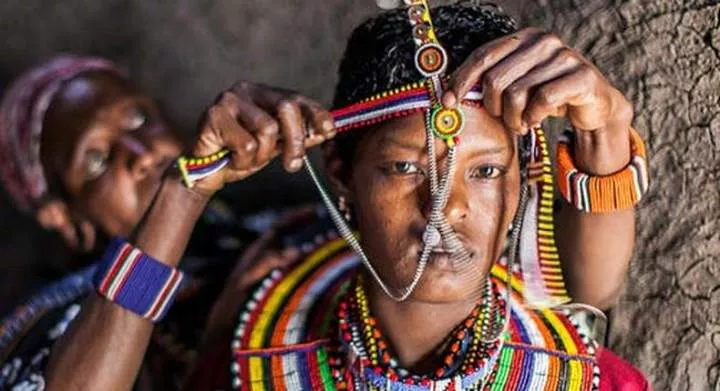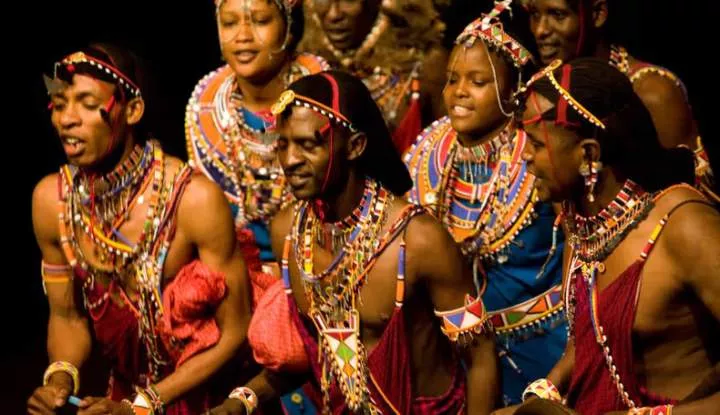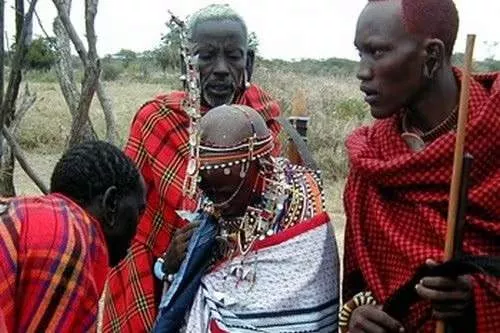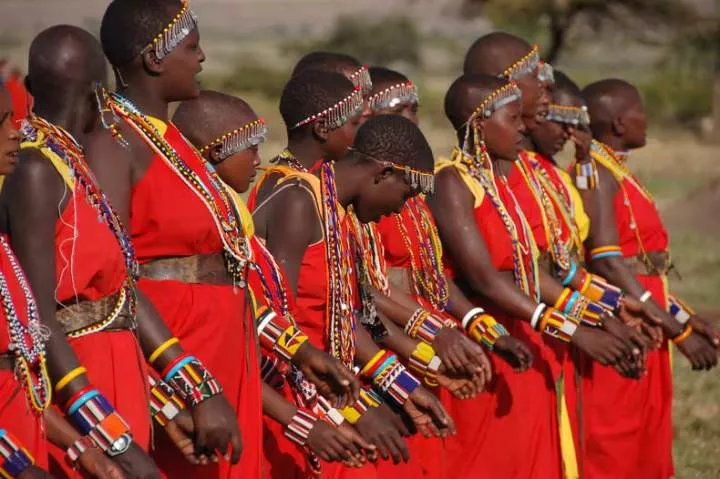See the tribe where father spits on daughter for goodluck and prosperity

Wedding traditions come in all shapes and sizes, from throwing rice in the West to the smashing of cake, and the elaborate henna ceremonies of South Asia.
But have you ever heard of a ceremony where the father blesses his daughter with a spit? This might seem strange at first, but for the Maasai people of East Africa, it’s a beautiful and symbolic tradition.
Who are the Maasai?
The Maasai are a semi-nomadic tribe inhabiting parts of Kenya and Tanzania.

They are known for their culture, rich traditions, and deep connection to their land and animals. Herding cattle is a central part of their way of life, and their social structure is complex, with a strong emphasis on community and respect for elders.
The importance of marriage in Maasai culture
Marriage is a significant event in Maasai society. It signifies the union of two families, strengthens alliances, and ensures the continuation of the tribe.

Traditionally, marriages are arranged by elders, with the bride’s family receiving a dowry of cattle from the groom’s family.
The spitting ceremony
Now, let’s get to the heart of the matter – the spitting ceremony. Here, the father of the bride spits on his daughter’s head and chest shortly before the wedding.

Understandably, this might seem like an odd or even disrespectful custom to outsiders. However, in Maasai culture, spitting is not seen as an insult, but rather as a symbolic gesture of blessing.
Why spitting?
So, why do the Maasai fathers spit on their daughters? Here’s the deeper meaning behind this tradition:
-
Transfer of blessings: The Maasai believe that a father’s spit carries his blessings, wisdom, and good fortune. By spitting on his daughter, the father is transferring these blessings to her, ensuring a happy and prosperous marriage.
-
Protection from evil: Spitting can also be seen as a way to ward off evil spirits and misfortune. The Maasai believe that by spitting on their daughter, they are protecting her from harm and negativity on her wedding day and throughout her married life.
-
Fertility and prosperity: Saliva can also symbolise fertility and abundance in Maasai culture. Spitting on the bride can be seen as a wish for her to have a healthy and fruitful marriage, blessed with many children.
This ceremony is just one part of the elaborate Maasai wedding celebrations. These celebrations can last for several days and involve singing, dancing, feasting, and gift-giving. The focus is on joy, community, and celebrating the bride’s transition into married life.
Respecting cultural differences
Customs and traditions can vary greatly across cultures. What might seem strange to us might hold deep significance for another society.

When encountering unfamiliar traditions, it’s best to approach them with an open mind and a desire to understand.
A tradition in transition
The Maasai way of life is constantly evolving. With increased exposure to modern influences, some younger generations of Maasai people are questioning traditional practices like arranged marriages. Whether this tradition will continue in the future remains to be seen.




